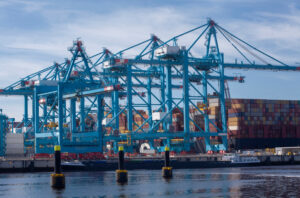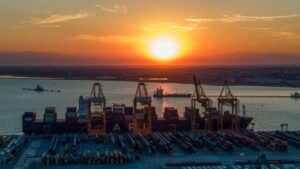Navis, a provider of maritime software solutions for cargo and vessel performance, has announced that it will equip a series of nine new-build bulk carriers with a dedicated version of its MACS3 loading computer.
The 82,000 dead-tonnage-weight (dtw) vessels are currently being built at the Yangzijiang shipyard in China, and will delivered between July 2019 and April 2020 to Mitsui-subsidiary Lepta Shipping.
CS Marine Technology, based in Shanghai, has designed the vessel type, which features seven cargo holds to stow heavy cargo.
View Navis' vessel performance solutions on PTI's supplier directory
According to a statement, the bulk carrier version of MACS3 offers key functionalities required to load and unload varying solid-bulk cargoes safely.
In addition to this, the software provides guidance on loading sequences and stowage, ballast-water distribution, and grounding scenarios.
Barrons offers a preview of what to expect at the event, including its key themes of automation and digitization… @naviscargo #PTIDaily #Automation #Digitization #Conference https://t.co/1MOqpaCgss
— Port Technology (PTI) (@PortTechnology) February 15, 2019
MACS3, including its dangerous goods module, is approved by leading classification societies such as ClassNK, DNVGL and Lloyds Register.
Sumitha Sampath, Navis, discusses the new era of container shipping in a recent Port Technology technical paper
Martin Bardi, Vice President and Head of Navis Carrier and Vessel Solutions, commented: “Taking into account that cargo failure and grounding are one of the main sources of bulk carrier incidents, carefully planning and controlling cargo and ballasting operations is vital to ensure seaworthiness and the efficient and safe transport of various types of bulk cargo.
“Since MACS3 is approved by the world’s leading classification societies, both ships crews and planners can rely on the instrument to help them adhere to current IMO regulations, and obtain regular updates on dangerous goods.”
With the confirmation of this new order, the MACS3 bulk carrier fleet has now grown to 500 vessels.










